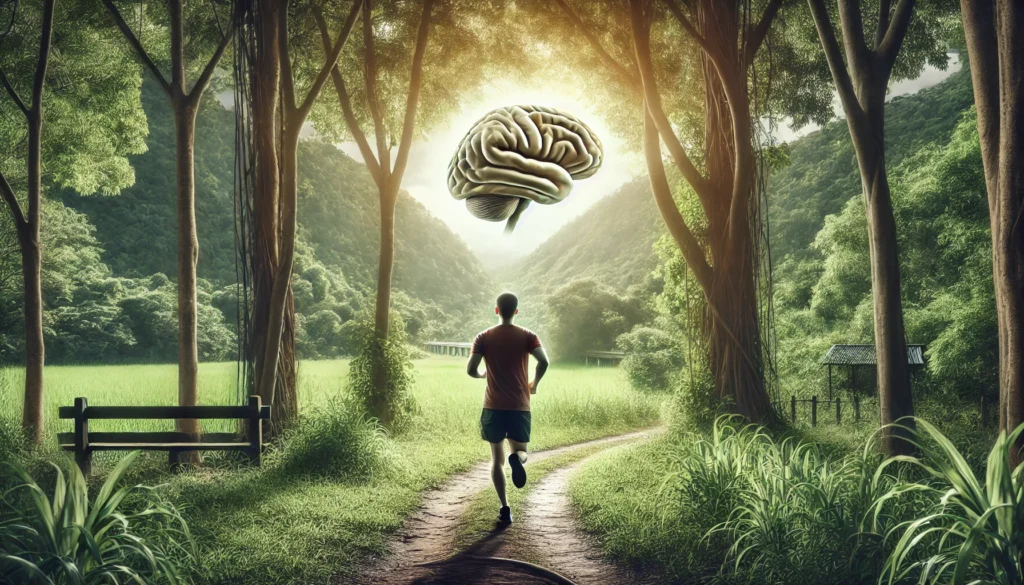Understanding Memory Loss and Its Impact
Memory loss is a common concern, especially among older adults, but it can also affect younger individuals due to various conditions. Whether it is caused by aging, injury, or an underlying medical condition, memory loss can impact daily life, relationships, and overall well-being. Understanding how to help someone with memory loss requires a combination of emotional support, cognitive strategies, and lifestyle modifications.
You May Also Like: Does Exercise Help with Brain Fog? The Science Behind Movement and Mental Clarity
Types of Memory Loss
Memory loss can be categorized into short-term and long-term impairments. Short-term memory loss affects the ability to retain new information, whereas long-term memory loss impacts the recall of past events. Some individuals experience mild memory problems, while others develop more severe conditions like dementia or Alzheimer’s disease.
Recognizing the Early Signs of Memory Loss
Identifying the early signs of memory loss is crucial for effective intervention. Common symptoms include:
- Frequently forgetting recent events or conversations.
- Struggling to recall names or common words.
- Misplacing items and struggling to retrace steps.
- Difficulty performing familiar tasks.
- Increased confusion or disorientation, especially in new environments.
- Mood changes, such as increased anxiety or frustration.

How to Help Someone with Memory Loss
Helping a person experiencing memory issues requires patience, structured routines, and targeted interventions. Whether it’s an elderly parent, a spouse, or a friend, understanding how to help a person with memory loss can improve their quality of life and delay cognitive decline.
Establishing a Structured Routine
Consistency is essential for individuals with memory loss. A predictable routine helps reinforce memory retention and reduces confusion. Creating daily schedules, using visual calendars, and setting reminders can support their ability to remember important tasks.
Encouraging Cognitive Stimulation
Cognitive exercises play a vital role in maintaining mental function. Activities such as puzzles, memory games, reading, and learning new skills help strengthen neural connections. Social engagement, like conversations and group activities, also contributes to cognitive resilience.
Using Memory Aids and Assistive Technology
Technology can provide essential support for individuals with memory loss. Digital tools such as smartphones with reminders, GPS tracking, and voice assistants can help them navigate daily life. Traditional aids like labeled drawers, written notes, and visual cues can also enhance memory retention.
Supporting Emotional and Psychological Well-being
Memory loss can be frustrating and distressing for both the individual and their caregivers. Providing emotional support, reassurance, and a stress-free environment can alleviate anxiety. Encouraging mindfulness practices, relaxation techniques, and positive social interactions can help improve their emotional health.
How to Prevent Amnesia and Memory Decline
Memory loss prevention is a lifelong process that involves lifestyle modifications, cognitive engagement, and proactive health measures. Understanding how to prevent amnesia and cognitive decline can help reduce the risk of severe memory problems.
Maintaining a Brain-Healthy Diet
Nutrition plays a significant role in cognitive function. A diet rich in antioxidants, omega-3 fatty acids, and essential vitamins supports brain health. Foods like leafy greens, fatty fish, nuts, and berries help prevent cognitive decline.
Engaging in Regular Physical Activity
Exercise enhances blood flow to the brain and promotes neuroplasticity. Activities such as walking, swimming, yoga, and strength training can improve memory and mental clarity. Regular physical activity has been linked to a lower risk of dementia.
Prioritizing Quality Sleep
Sleep is crucial for memory consolidation. Poor sleep patterns can impair cognitive function and increase the risk of memory loss. Establishing a bedtime routine, avoiding screen time before sleep, and managing stress contribute to better sleep quality.
Managing Chronic Conditions
Conditions such as diabetes, hypertension, and heart disease can affect cognitive function. Regular medical check-ups, medication management, and a healthy lifestyle can help prevent memory problems associated with these conditions.
Reducing Stress and Practicing Mindfulness
Chronic stress negatively impacts brain function and memory retention. Mindfulness techniques such as meditation, deep breathing exercises, and engaging in hobbies can help reduce stress and support cognitive health.

How to Help People with Short-Term Memory Loss
Short-term memory loss can be particularly challenging because it affects daily interactions and routine tasks. Learning how to help people with short-term memory loss involves patience and targeted strategies.
Repeating and Reinforcing Information
Repetition and reinforcement techniques help strengthen memory. Repeating important details, using simple instructions, and prompting recall can support memory retention.
Using Visual and Auditory Cues
Visual aids, such as written lists, labeled objects, and pictures, help individuals remember information. Audio reminders and alarms can also assist with daily tasks.
Encouraging Mental Exercises
Simple cognitive exercises, such as matching games, word associations, and storytelling, help improve short-term memory. Encouraging individuals to describe past events or engage in discussions can also be beneficial.
How to Help an Elderly Parent with Memory Loss
Caring for an elderly parent with memory loss can be emotionally and physically demanding. Understanding how to help an elderly parent with memory loss requires compassion, adaptability, and a well-structured approach.
Providing a Safe Living Environment
Safety modifications at home can help prevent accidents and reduce confusion. Installing grab bars, removing tripping hazards, and labeling important areas ensure a secure environment for elderly individuals with memory issues.
Encouraging Social Interaction
Loneliness and isolation can worsen memory problems. Encouraging participation in social groups, hobbies, and family activities helps keep the mind engaged and improves overall well-being.
Assisting with Medication Management
Memory loss can make medication adherence challenging. Using pill organizers, setting alarms, and seeking caregiver assistance ensure that elderly parents take medications as prescribed.
Seeking Professional Support
Consulting healthcare professionals, including neurologists, geriatric specialists, and therapists, can help with diagnosing and managing memory loss. Support groups and caregiver resources can also provide guidance and emotional support.
How to Prevent Memory Loss in the Future
Taking proactive steps to preserve cognitive function is essential for individuals of all ages. Understanding how to prevent memory loss through healthy habits and preventive care can significantly reduce the risk of cognitive decline.
Staying Socially Active
Maintaining strong social connections helps stimulate the brain and prevent cognitive decline. Regular interactions with friends, family, and community groups enhance mental well-being.
Lifelong Learning and Mental Challenges
Engaging in continuous learning, whether through education, hobbies, or intellectual challenges, keeps the brain active. Learning a new language, playing musical instruments, or taking up new skills contributes to cognitive longevity.
Routine Health Check-ups
Regular health screenings help detect early signs of memory-related conditions. Monitoring cholesterol, blood sugar levels, and heart health ensures overall cognitive well-being.

Frequently Asked Questions (FAQs)
1. How can you help someone with memory loss maintain their independence?
Helping someone with memory loss maintain their independence involves creating a structured and supportive environment. Providing labeled storage spaces, using visual reminders, and establishing a daily routine can make tasks easier to manage. Encouraging the use of assistive technology, such as voice assistants and reminder apps, helps individuals stay organized and complete daily responsibilities. Additionally, focusing on what the person can still do, rather than what they struggle with, fosters a sense of self-confidence and autonomy. Patience and reassurance are key, as frustration can arise when memory challenges interfere with daily life.
2. What are some effective communication strategies for people with memory problems?
When communicating with someone experiencing memory loss, it’s important to speak clearly, use simple sentences, and maintain eye contact. Asking one question at a time and giving the person extra time to process information can improve interactions. Avoiding unnecessary corrections and instead offering gentle reminders can reduce frustration and confusion. Using visual cues or writing down important details also helps reinforce verbal communication. Maintaining a calm and reassuring tone encourages more positive interactions and prevents anxiety-related memory lapses.
3. How do you prevent memory loss as you age?
Preventing memory loss involves a combination of cognitive stimulation, physical activity, and healthy lifestyle choices. Engaging in challenging mental activities like reading, puzzles, or learning new skills helps keep the brain active. Regular exercise improves blood flow to the brain, reducing the risk of cognitive decline. Eating a nutrient-rich diet that includes omega-3 fatty acids, antioxidants, and vitamins supports brain function. Managing stress through mindfulness techniques and ensuring quality sleep also play a crucial role in cognitive preservation. By adopting these habits early, individuals can significantly reduce their risk of developing memory problems later in life.
4. How can caregivers support someone with short-term memory loss?
Caregivers can support someone with short-term memory loss by creating a predictable and structured routine. Repeating key pieces of information and using memory aids, such as labeled items or written reminders, reinforces retention. Encouraging participation in cognitive exercises, like word games or storytelling, can help strengthen memory. Simplifying tasks and breaking them down into smaller steps makes them more manageable and reduces frustration. Most importantly, offering emotional reassurance and patience helps the individual feel supported rather than overwhelmed.
5. What lifestyle changes can reduce the risk of amnesia?
While not all cases of amnesia can be prevented, adopting a brain-healthy lifestyle significantly lowers the risk. Avoiding excessive alcohol consumption, managing stress, and preventing head injuries through proper safety measures can protect memory function. Staying socially engaged, maintaining a healthy sleep routine, and managing chronic conditions like hypertension and diabetes also support brain health. A diet rich in brain-boosting nutrients, combined with regular mental exercises, strengthens neural connections. Taking proactive steps early in life can reduce the likelihood of memory-related conditions in the future.
6. How can you help an elderly parent with memory loss stay socially engaged?
Keeping an elderly parent with memory loss socially engaged helps prevent isolation and cognitive decline. Encouraging participation in senior groups, family gatherings, or volunteer activities fosters mental stimulation and emotional well-being. Introducing them to new hobbies, such as painting, music, or gardening, provides opportunities for social interaction. If in-person visits are limited, setting up video calls with friends and family members helps maintain connections. Ensuring they feel included in conversations and daily decision-making promotes a sense of belonging and purpose.
7. What role does sleep play in memory retention and cognitive function?
Sleep is essential for memory consolidation and overall cognitive function. During sleep, the brain processes and organizes new information, strengthening neural pathways that support learning and recall. Poor sleep quality is linked to increased forgetfulness, slower reaction times, and heightened stress levels, all of which negatively impact memory. Establishing a consistent sleep schedule and minimizing exposure to blue light before bedtime improves sleep hygiene. Additionally, practicing relaxation techniques, such as deep breathing or meditation, can enhance sleep quality and cognitive performance.
8. How do environmental modifications help individuals with memory problems?
Modifying the environment for someone with memory loss reduces confusion and enhances daily function. Labeling cabinets, placing visual cues around the home, and organizing frequently used items in accessible locations improve navigation and independence. Using automatic timers, motion-sensor lights, and reminder devices can assist with daily routines. Keeping the home uncluttered and minimizing distractions helps individuals focus and reduces frustration. Ensuring safety measures, such as installing grab bars and using non-slip mats, also prevents accidents that could further impact cognitive health.
9. Can stress and anxiety contribute to memory loss?
Yes, chronic stress and anxiety can significantly impact memory and cognitive function. High levels of the stress hormone cortisol interfere with the brain’s ability to encode and retrieve information. Anxiety often leads to mental overload, making it difficult to concentrate and retain details. Practicing stress management techniques such as meditation, exercise, and deep breathing can counteract these effects. Seeking professional support when necessary helps individuals develop coping strategies to reduce the cognitive burden of stress and anxiety.
10. What should you do if memory loss begins to interfere with daily life?
If memory loss begins to disrupt daily life, seeking professional medical evaluation is essential. A healthcare provider can determine whether the memory issues are related to normal aging, stress, or an underlying medical condition such as dementia. Early diagnosis allows for better management strategies, including medication, cognitive therapy, and lifestyle changes. Family members should document symptoms, changes in behavior, and challenges faced during daily activities to provide accurate information to medical professionals. Proactively addressing memory concerns ensures access to the best available support and interventions.
Conclusion: Empowering Memory Support and Prevention
Memory loss presents significant challenges, but with the right strategies, it is possible to improve cognitive function and support individuals experiencing memory issues. Learning how to help someone with memory loss requires a compassionate approach, structured interventions, and lifestyle modifications.
By understanding how to help a person with memory loss, how to prevent amnesia, and how to help people with short-term memory loss, caregivers and loved ones can make a meaningful difference. Whether it involves assisting an elderly parent or implementing preventive measures for oneself, prioritizing brain health is essential for long-term cognitive function.
Ultimately, taking proactive steps, seeking professional support, and fostering a supportive environment can empower individuals with memory issues and enhance their overall quality of life.
Further Reading:
Healthful diet linked to reduced risk of cognitive decline
Cognitive interventions for memory and psychological well-being in aging and dementias
Understanding Memory Loss: One Scientist’s Quest to Heal Aging Brains
Important Note: The information contained in this article is for general informational purposes only, and should not be construed as health or medical advice, nor is it intended to diagnose, prevent, treat, or cure any disease or health condition. Before embarking on any diet, fitness regimen, or program of nutritional supplementation, it is advisable to consult your healthcare professional in order to determine its safety and probable efficacy in terms of your individual state of health.
Regarding Nutritional Supplements Or Other Non-Prescription Health Products: If any nutritional supplements or other non-prescription health products are mentioned in the foregoing article, any claims or statements made about them have not been evaluated by the U.S. Food and Drug Administration, and such nutritional supplements or other health products are not intended to diagnose, treat, cure, or prevent any disease.


